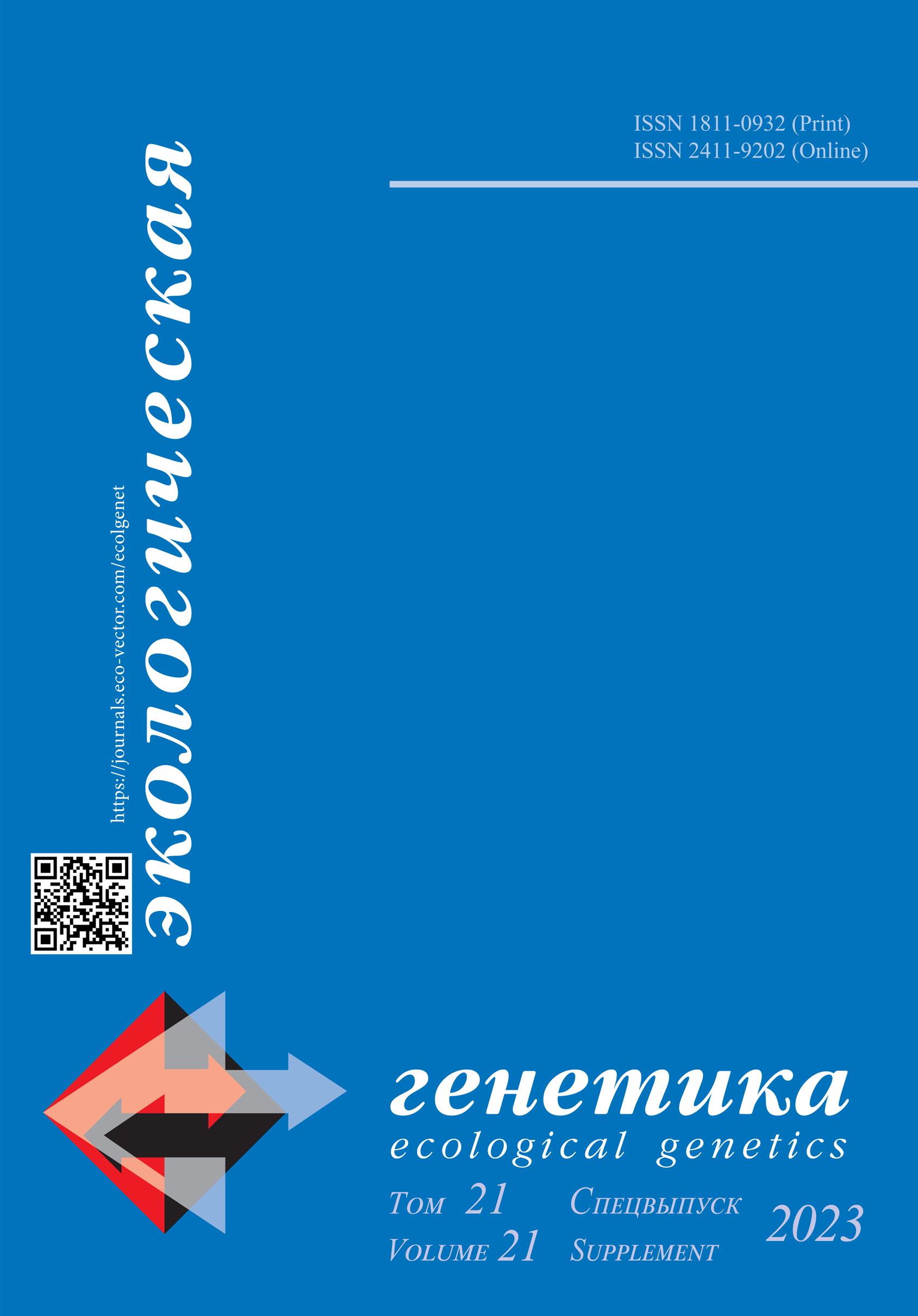Genetically modified legume plants as a basis for studying the signal regulation of symbiosis with nodule bacteria
- Authors: Dolgikh E.A.1, Kantsurova E.S.1, Kozyulina P.Y.1, Bovin A.D.1, Dolgikh A.V.1,2, Dymo A.M.1, Kozlov N.V.1,2
-
Affiliations:
- All-Russia Research Institute for Agricultural Microbiology
- Saint Petersburg State University
- Issue: Vol 21 (2023): Спецвыпуск
- Pages: 54-55
- Section: Genetically modified organism. The Нistory, Achivements, Social and Environmental Riscs
- Submitted: 20.08.2023
- Accepted: 31.08.2023
- Published: 04.12.2023
- URL: https://journals.eco-vector.com/ecolgenet/article/view/568623
- DOI: https://doi.org/10.17816/ecogen568623
- ID: 568623
Cite item
Full Text
Abstract
The development of legume-rhizobium symbiosis is based on signal exchange between partners, which leads to the formation of nitrogen-fixing root nodules. Under the influence of rhizobial signal molecules, the Nod factors, the signal transduction cascade is activated, where the LysM-type receptor kinases and a complex of intracellular regulators, a significant part of which are still unknown, can play an important role.
Using transcriptomic and proteomic analysis, we searched for new regulators of the signal pathway in pea Pisum sativum L., which are activated under the influence of Nod factors. Phospholipases C and D, GTPases, calcium-dependent protein kinases, and mitogen-activated protein kinases (MAPKs) have been identified among such novel regulators. The influence of one of such regulators, the MAPK6, on the development of symbiosis was studied in more detail. Using genetic engineering approaches, we increased the transcriptional activity of MAPK6 in transgenic roots, which led to an increase in the number of nodules and the biomass of pea plants. A similar effect was also found for the homologous MAPK6 gene in another legume Medicago truncatula, which has a type of nodulation similar to that one in pea. New approaches have been developed to obtain stable pea transformants with enhanced level of MAPK6 transcription using the constitutive p35S promoter. A comprehensive study of such plants inoculated with rhizobia was carried out. In addition, the approaches for genome editing of pea plants have been designed using the CRISPR/Cas system, when the MAPK6 gene was used as a target. Thus, the possibility of using genetic engineering methods to obtain plants with increased symbiosis efficiency was investigated.
Keywords
Full Text
The development of legume-rhizobium symbiosis is based on signal exchange between partners, which leads to the formation of nitrogen-fixing root nodules. Under the influence of rhizobial signal molecules, the Nod factors, the signal transduction cascade is activated, where the LysM-type receptor kinases and a complex of intracellular regulators, a significant part of which are still unknown, can play an important role.
Using transcriptomic and proteomic analysis, we searched for new regulators of the signal pathway in pea Pisum sativum L., which are activated under the influence of Nod factors. Phospholipases C and D, GTPases, calcium-dependent protein kinases, and mitogen-activated protein kinases (MAPKs) have been identified among such novel regulators. The influence of one of such regulators, the MAPK6, on the development of symbiosis was studied in more detail. Using genetic engineering approaches, we increased the transcriptional activity of MAPK6 in transgenic roots, which led to an increase in the number of nodules and the biomass of pea plants. A similar effect was also found for the homologous MAPK6 gene in another legume Medicago truncatula, which has a type of nodulation similar to that one in pea. New approaches have been developed to obtain stable pea transformants with enhanced level of MAPK6 transcription using the constitutive p35S promoter. A comprehensive study of such plants inoculated with rhizobia was carried out. In addition, the approaches for genome editing of pea plants have been designed using the CRISPR/Cas system, when the MAPK6 gene was used as a target. Thus, the possibility of using genetic engineering methods to obtain plants with increased symbiosis efficiency was investigated.
About the authors
Elena A. Dolgikh
All-Russia Research Institute for Agricultural Microbiology
Email: dol2helen@yahoo.com
ORCID iD: 0000-0002-5375-0943
SPIN-code: 4453-2060
Cand. Sci. (Biol.), Leading Researcher, Laboratory of Molecular and Cellular Biology
Russian Federation, Saint PetersburgElizaveta S. Kantsurova
All-Russia Research Institute for Agricultural Microbiology
Email: rudaya.s.e@gmail.com
ORCID iD: 0000-0002-3081-9880
SPIN-code: 4752-1910
Junior Researcher, Signal Regulation Laboratory
Russian Federation, Saint PetersburgPolina Yu. Kozyulina
All-Russia Research Institute for Agricultural Microbiology
Email: polykoz@gmail.com
Senior Researcher, Signal Regulation Laboratory
Russian Federation, Saint PetersburgAndrey D. Bovin
All-Russia Research Institute for Agricultural Microbiology
Email: andy-piter2007@mail.ru
ORCID iD: 0000-0003-4061-435X
SPIN-code: 8119-0360
Junior Researcher
Russian Federation, Saint PetersburgAlexandra V. Dolgikh
All-Russia Research Institute for Agricultural Microbiology; Saint Petersburg State University
Email: sqshadol@gmail.com
ORCID iD: 0000-0003-1845-9701
SPIN-code: 2602-1514
Engineer
Russian Federation, Saint Petersburg; Saint PetersburgAlina M. Dymo
All-Russia Research Institute for Agricultural Microbiology
Email: dymoalina@yandex.ru
SPIN-code: 8378-4048
Junior Researcher
Russian Federation, Saint PetersburgNikolai V. Kozlov
All-Russia Research Institute for Agricultural Microbiology; Saint Petersburg State University
Author for correspondence.
Email: bionkbio@gmail.com
Student, Department of Genetics and Biotechnology
Russian Federation, Saint Petersburg; Saint PetersburgReferences
Supplementary files










